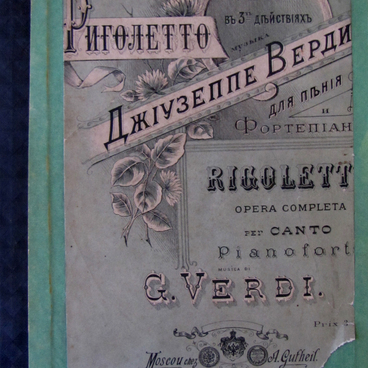Lev Karakhan was born on January 20, 1889 in the city of Tiflis in the family of a sworn attorney. In 1904, he joined the Russian Social Democratic Labor Party. He earned his living by tutoring and reporting.
In 1913, Lev Karakhan became a member of the inter-district committee formed in St. Petersburg, where he combined numerous functions: he campaigned, was engaged in propaganda work, participated in organizing the unification of districts and establishing ties of the inter-district committee with provincial and foreign groups, wrote leaflets.
With the outbreak of World War I, Karakhan, together with his comrades in the committee, organized an illegal printing house. In the fall of 1915, he was arrested. During the search they found several articles for publication in Rabochaya Vedomosti. For them, the young revolutionary was sentenced to administrative exile in Tomsk, where in 1916, he graduated from the Tomsk University as an external student.
After the February Revolution, the liberated Lev Karakhan returned to Petrograd, where he continued to work in the inter-district committee, leading a vigorous campaign for merger with the St. Petersburg committee of the Bolsheviks. In May 1917, he was accepted into the ranks of the Bolshevik Party.
In the same year, Karakhan was elected a member of the Central Executive Committee of the Soviets of Workers’ and Soldiers’ Deputies of the 1st convocation, a member of the Petrograd Military Revolutionary Committee, a member of the Presidium and secretary of the Petrograd Soviet of Workers’ and Soldiers’ Deputies.
During negotiations with Germany in Brest-Litovsk, Lev Karakhan was the secretary of all three Soviet delegations. On behalf of the Soviet government, he negotiated with Persia, Afghanistan, Bukhara and Khiva. From May 1921 to October 1922, he was the plenipotentiary representative in Poland.
In 1923, Karakhan was appointed head of the delegation to South China. Negotiations in Beijing ended with the signing of an agreement with China, which provided for the establishment of diplomatic and consular relations.
He also successfully completed the next task - the establishment of diplomatic relations between the USSR and Japan.
In 1934, Lev Karakhan was made the plenipotentiary representative of the USSR in Turkey, where he was very popular. But three years later, he was summoned to Moscow under the pretext of being transferred to the post of ambassador to the United States and was arrested right at the station, upon leaving the train.
On September 20, 1937, the Military Collegium of the USSR Supreme Court sentenced Karakhan to capital punishment for participating in an anti-Soviet conspiracy. On the same day, right in the building of the Supreme Collegium of the Supreme Court of the USSR, he was shot.
In 1956, the diplomat was posthumously rehabilitated.
In 1913, Lev Karakhan became a member of the inter-district committee formed in St. Petersburg, where he combined numerous functions: he campaigned, was engaged in propaganda work, participated in organizing the unification of districts and establishing ties of the inter-district committee with provincial and foreign groups, wrote leaflets.
With the outbreak of World War I, Karakhan, together with his comrades in the committee, organized an illegal printing house. In the fall of 1915, he was arrested. During the search they found several articles for publication in Rabochaya Vedomosti. For them, the young revolutionary was sentenced to administrative exile in Tomsk, where in 1916, he graduated from the Tomsk University as an external student.
After the February Revolution, the liberated Lev Karakhan returned to Petrograd, where he continued to work in the inter-district committee, leading a vigorous campaign for merger with the St. Petersburg committee of the Bolsheviks. In May 1917, he was accepted into the ranks of the Bolshevik Party.
In the same year, Karakhan was elected a member of the Central Executive Committee of the Soviets of Workers’ and Soldiers’ Deputies of the 1st convocation, a member of the Petrograd Military Revolutionary Committee, a member of the Presidium and secretary of the Petrograd Soviet of Workers’ and Soldiers’ Deputies.
During negotiations with Germany in Brest-Litovsk, Lev Karakhan was the secretary of all three Soviet delegations. On behalf of the Soviet government, he negotiated with Persia, Afghanistan, Bukhara and Khiva. From May 1921 to October 1922, he was the plenipotentiary representative in Poland.
In 1923, Karakhan was appointed head of the delegation to South China. Negotiations in Beijing ended with the signing of an agreement with China, which provided for the establishment of diplomatic and consular relations.
He also successfully completed the next task - the establishment of diplomatic relations between the USSR and Japan.
In 1934, Lev Karakhan was made the plenipotentiary representative of the USSR in Turkey, where he was very popular. But three years later, he was summoned to Moscow under the pretext of being transferred to the post of ambassador to the United States and was arrested right at the station, upon leaving the train.
On September 20, 1937, the Military Collegium of the USSR Supreme Court sentenced Karakhan to capital punishment for participating in an anti-Soviet conspiracy. On the same day, right in the building of the Supreme Collegium of the Supreme Court of the USSR, he was shot.
In 1956, the diplomat was posthumously rehabilitated.



